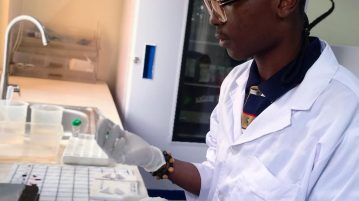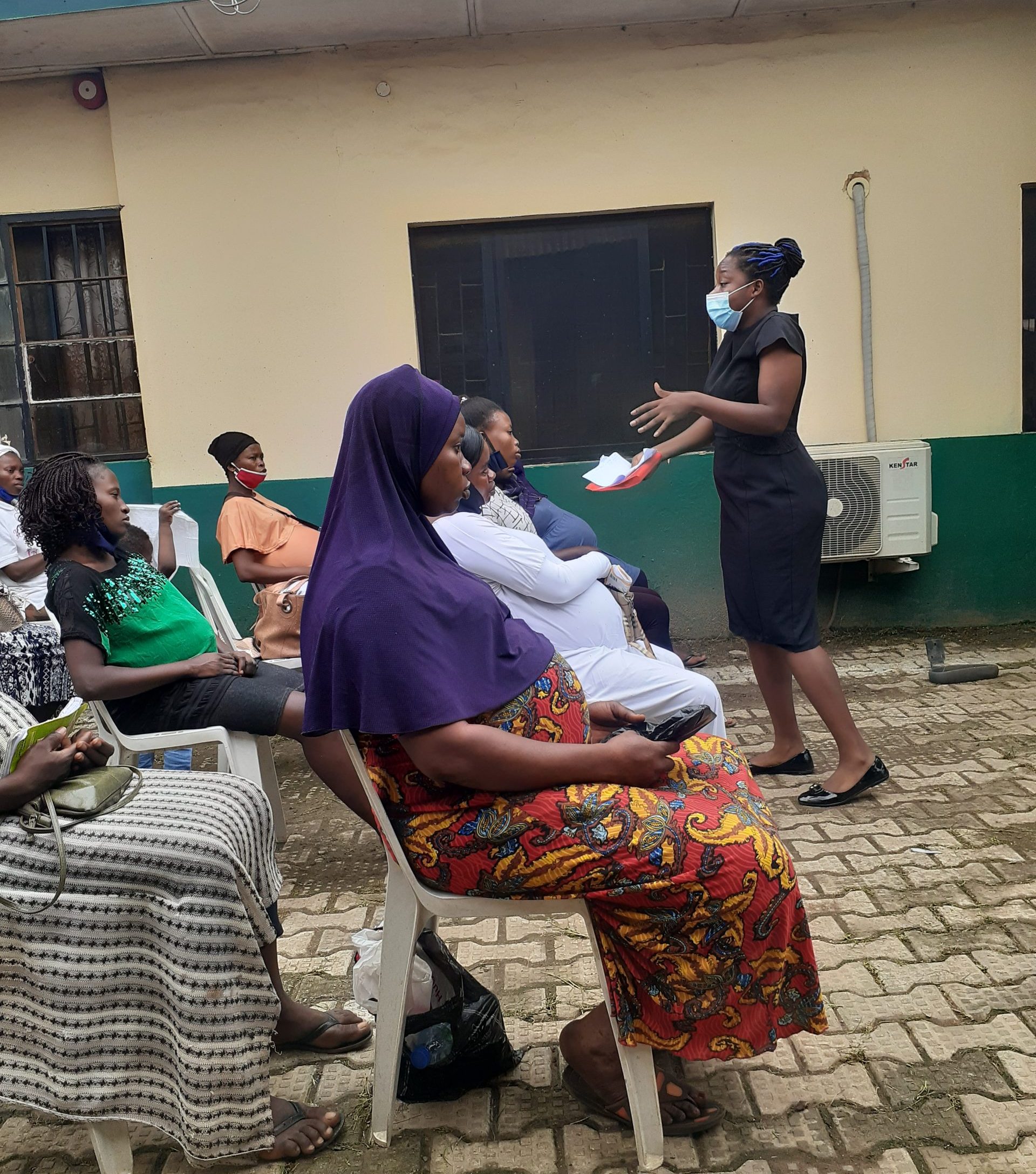In view of the current state of medical practice and the economy in Nigeria, it is paramount to address these issues, looking into the effect of each as standalone entities, as well as the effect of both on each other.
Striving to achieve the collective mission of medical professionals, this address based on the theme, “Economic Indices and Medical Practice: The Way Forward” was delivered at the Annual General Meeting of Association of Resident Doctors, Federal Medical Centre Ebutemetta (ARD-FMCEB):
As experts and stakeholders, we have gathered at this pivotal intersection of medicine and economics with great enthusiasm and a sense of responsibility.
In the context of Africa, where challenges and opportunities coexist in harmony, our collective efforts in the medical field have the power to shape the trajectory of our nations. As we delve into this subject, let us be guided by the words of Kwame Nkrumah, who reminded us that “We must unite now or perish.”
As we navigate the intricate landscape of healthcare in Africa, our shared commitment to advancing the healthcare system is a testament to our noble profession and a recognition of the intricate relationship between economic indices and the well-being of our communities.
In our interconnected world, where resources are finite and demands for quality healthcare are ever-increasing, understanding the economic dimensions of medical practice becomes paramount.
As primary stakeholders in the healthcare sector, our responsibilities extend beyond the examination room; they encompass the intricate web of economic factors that shape the landscape of medicine.
First and foremost, we must acknowledge the undeniable correlation between economic indicators and the overall health of a nation. Economic stability and growth directly influence the resources available for healthcare infrastructure, research, and the development of innovative medical technologies.
Therefore, as medical practitioners and stakeholders, it is incumbent upon us to actively engage in economic policy discussions to ensure that healthcare remains a priority.
One key aspect that requires our attention is the allocation of healthcare resources. The challenge lies in striking a delicate balance between efficiency and compassion. How we allocate resources—whether it be funding, medical personnel, or technology—directly impacts the accessibility and quality of healthcare services.
As we navigate this complex terrain, it is essential to advocate for policies that promote equitable distribution and prioritize preventive care, ultimately fostering a healthier society.
Moreover, the economic viability of medical practices must be addressed. In an era of escalating healthcare costs and budget constraints, we must explore sustainable models that ensure both the financial viability of healthcare institutions and the affordability of services for patients. This calls for innovation, collaboration, and a proactive approach to address the economic challenges facing medical practitioners today.
A closer look at Nigeria’s current turn of events reveals a disturbing trend in the exit of manufacturing companies, especially pharmacological industries. The immediate biting effects of this exodus are felt by all and sundry. The prices of drugs have astronomically risen to high heaven. The aged dynamics of drugs of choice and choice of drugs have been altered by a decline in buying power.
In our pursuit of solutions, we must leverage technology to enhance healthcare delivery and optimize resource utilization. Telemedicine, artificial intelligence, and data analytics present unprecedented opportunities to streamline processes, reduce costs, and improve patient outcomes. Embracing these technological advancements will benefit our patients and contribute to the economic efficiency of medical practice.
The challenge is clear: how can we forge a path forward that addresses the issue of budgeting allocation to health, revitalizes the GDP-healthcare relationship, reverses the decline in life expectancy, and fosters significant investment in the health sector?
To address these challenges, we must first recognize that health is not an expenditure but an investment in our human capital. As we advocate for increased budgetary allocations to health, let us be guided by the words of Julius Nyerere: “A nation that does not take care of its elderly and its children is not a nation at all.”
Increased investment in the health sector is an investment in the resilience and productivity of our nations. It is an acknowledgment that our people’s health is intertwined with the prosperity of our nation. We must work collaboratively with policymakers and advocate for aligning healthcare investments with broader economic development goals.
Nelson Mandela once said, “Health cannot be a question of income; it is a fundamental human right.” The scary statistics below should spur us to reflect and act; it must not be business as usual.
1. The World Bank reports that several African nations allocate less than 10% of their annual budgets to healthcare, falling short of the 15% benchmark set by the Abuja Declaration. This underscores the urgent need for a re-evaluation of budgetary priorities.
2. The Gross Domestic Product (GDP) of many African countries reveals the critical importance of investing in healthcare. Our people’s health is not just a societal asset but a cornerstone of economic productivity and resilience.
The Lancet Global Burden of Disease Study brings to light a concerning trend in declining life expectancy across sub-Saharan Africa. As medical professionals, we cannot remain indifferent to this negative impact on our communities.
Moreover, let us explore innovative avenues for public-private partnerships. We can leverage resources and expertise to enhance healthcare access and delivery by fostering collaboration between the public and private sectors. As Chinua Achebe wisely noted, “Until the lions have their own historians, the history of the hunt will always glorify the hunter.” Let us be the historians of our healthcare, shaping a narrative that prioritizes the health and well-being of our people.
Above and beyond our eloquent brainstorming sessions and summits, we must be more than willing to implement our agreed decisions. Decisions made in boardrooms must reverberate in the clinics and hospitals, affecting the accessibility and quality of healthcare. As stewards of health, it is our duty to advocate for policies that bridge gaps, ensuring that every individual, regardless of economic status, has access to the healthcare they deserve.
Investment in the health sector is not merely a fiscal allocation but a commitment to the future. As Nelson Mandela wisely remarked, “A nation should not be judged by how it treats its highest citizens but its lowest ones.” Our citizens, particularly the vulnerable and underserved, depend on the strength of our healthcare systems.
To forge a way forward, we must advocate for increased budgetary allocations to health, ensuring that resources are not only allocated but efficiently utilized.
Furthermore, the health sector must be seen as a driver of economic growth, not merely a beneficiary. We must explore innovative public-private partnerships that stimulate economic activity while enhancing healthcare access. This shared responsibility requires collaboration between the public and private sectors.
In conclusion, as we focus on the intricate interplay between economic indices and medical practice, let our decisions reflect not only the wisdom of medical expertise but also a keen understanding of the economic forces shaping our world. By fostering collaboration, advocating for equitable resource allocation, and embracing technological innovation, we can usher in a new era where healthcare is not only a medical imperative but also an economic cornerstone.
As we stand at the forefront of progress, poised to shape a future where economic indices and medical practice converge to build healthier, more prosperous societies across our beloved continent, let us together stride confidently into a future where healthcare and economic prosperity walk hand in hand.
Thank you for your attention; God bless you.

Editor’s note:
This address was written and delivered by Dr Benjamin Oluwatosin Eno-Obong Olowojebutu, First Vice-President, Nigerian Medical Association (NMA 2024-2026).



